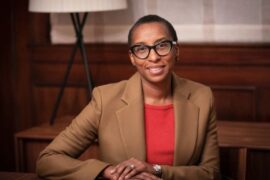If I had a magic wand, power, and an unlimited budget, I would accept the challenge of being the Superintendent of Chicago Public Schools.
In a city as vibrant, resilient, and complete as Chicago, public education must be more than just a system—it must be a force for justice, stability, equality, and opportunity. If I were the superintendent, I would lead with three non-negotiables: equity, community, and courage. These are my steps for a better education.

First of all, the superintendent needs to be an educator. The system is large, and it should be divided into business and education sectors. Former CEO of Chicago Public Schools, Paul Vallas, had the right idea when he divided the system into parts, led by Blondean Davis and Lula Ford.

Students should feel safe. My first priority is to make every school a place of safety. This means expanding access to mental health support with full-time counselors and social workers.

Thirdly, school funding needs to be based on need, not just enrollment. The equity gap in CPS is not a myth; it’s measurable in crumbling school buildings and outdated materials. Schools represent investment, not expense. No child should be judged by their zip code.

Teachers are the heartbeat of CPS, but they are overburdened, underpaid, and underappreciated. Competitive compensation is essential. It is sinful to compare what we pay athletes and entertainers to sing for an evening or play a game with a teacher’s salary, where minds are being shaped. I would give teachers the space to teach creativity. Teachers have to have the will and power to experiment and grow.

Most of all, I would reimagine the curriculum for the 21st century. I would support culturally responsive instruction, STEM expansion, financial literacy, and the arts—not as electives, but as essentials. Students need to be job-ready, community-ready, and future-ready. They would also receive vocational training; electrician, plumbing, and carpentry could be majors. Students should be prepared for opportunities. They need to learn how to be entrepreneurs. The business community and college could be extremely helpful when students have discovery projects that might turn into businesses. Courses on success principles should be taught with the same intensity as reading.
Students should be encouraged to be active in sports and to engage in the arts. This is how a student finds himself. Superintendents don’t save systems; communities do. Parents must be active participants in their children’s education, from dialogue with teachers to parent-teacher meetings.
Schools don’t need managers; they need leaders with moral clarity, responsibility, and accountability.
Students need a change, an opportunity to have a seat at the table they choose. But they need a variety of skills to sit and prepare for the future.
One of the things I learned as an educator is that you are not training a student for today; you are always planning for tomorrow.







